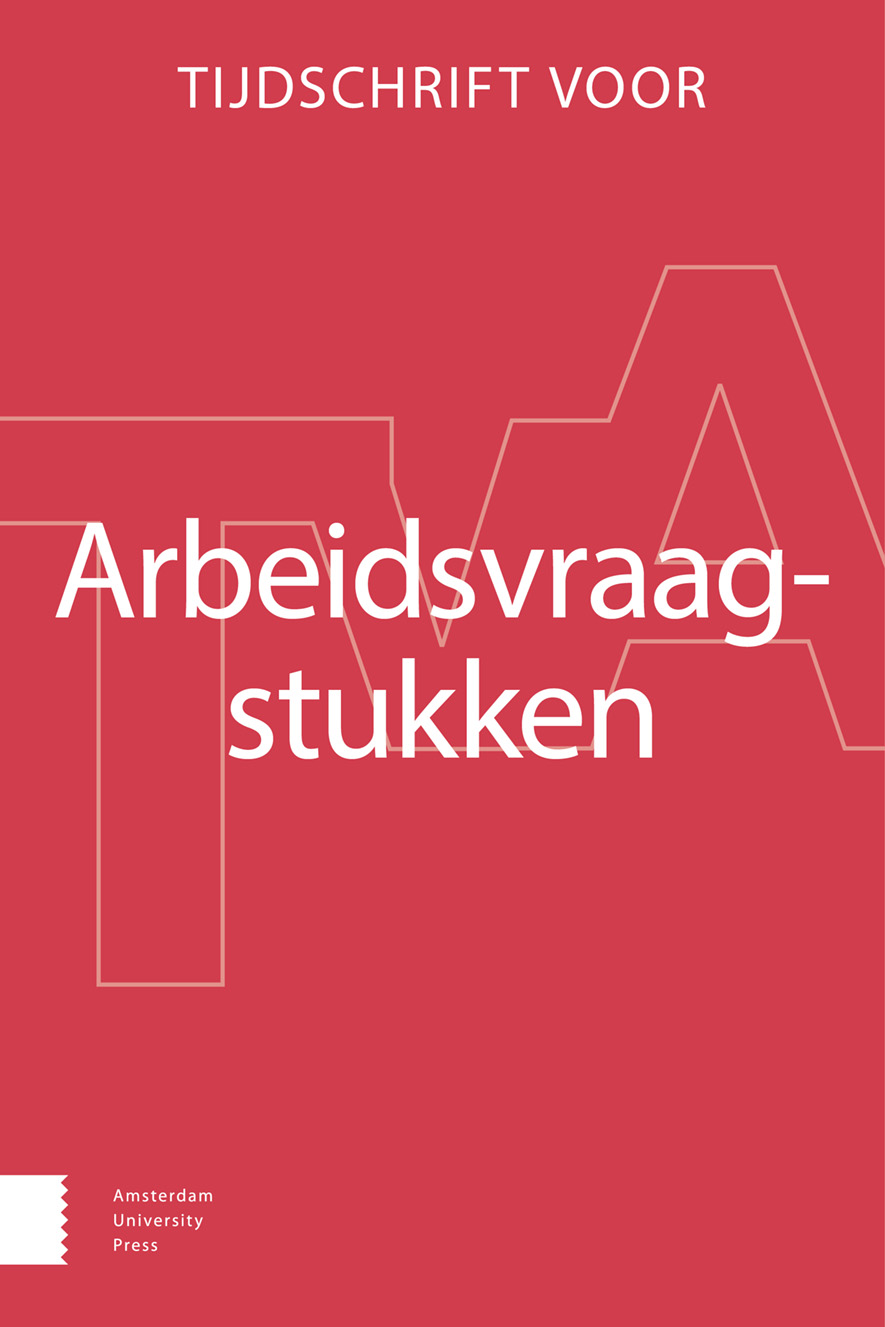-
oa De COVID-19-crisis en ongelijkheid op de arbeidsmarkt: naar een ‘nieuw normaal’ met meer of minder ongelijkheden?
- Amsterdam University Press
- Source: Tijdschrift voor Arbeidsvraagstukken, Volume 37, Issue 1, Jan 2021, p. 23 - 34
Abstract
De coronacrisis confronteert ons op een extreme manier met een aantal vormen van ongelijkheid die onze arbeidsmarkt kenmerken. In het eerste deel van dit essay identificeren we ongelijkheden die zeer zichtbaar geworden zijn door de coronacrisis, met name de ongelijke waardering van beroepen, ongelijke onzekerheid, de ongelijke fysieke en mentale risico’s verbonden aan werk, en de ongelijke verdeling van zorgtaken. Hierbij wijzen we op manieren waarop deze ongelijkheden verbonden zijn aan sociale identiteiten, zoals gender, etniciteit en handicap. In het tweede deel bespreken we lessen die we uit de crisis kunnen trekken. Als we gewoon trachten terug te keren naar het ‘oude normaal’, zal de arbeidsmarkt gekenmerkt blijven door dezelfde ongelijkheden en zullen de groepen in de meest achtergestelde posities de voornaamste slachtoffers van de crisis worden. We doen daarom een oproep om via organisatie- en overheidsbeleid in te zetten op meer gelijkheid en zo te evolueren naar een ‘nieuw normaal’ dat gekenmerkt wordt door eerlijker gewaardeerd en zekerder werk, en door meer aandacht voor welzijn en zorg.


